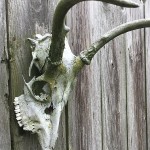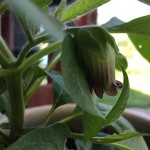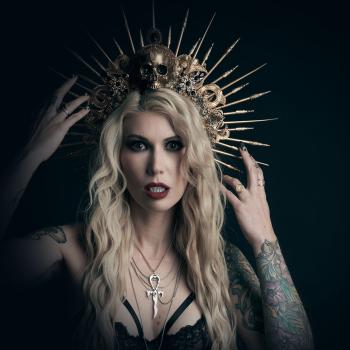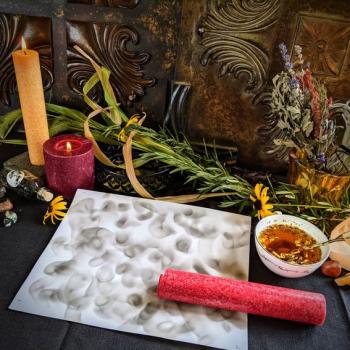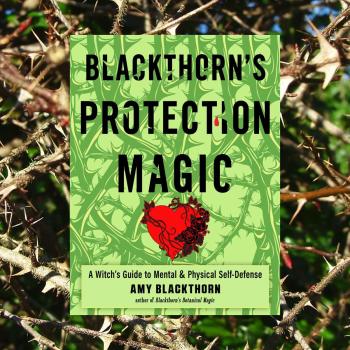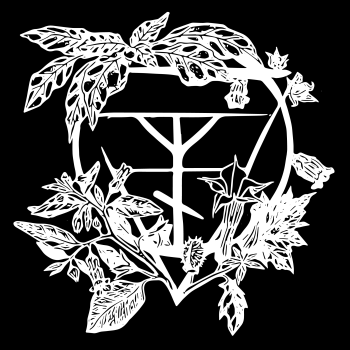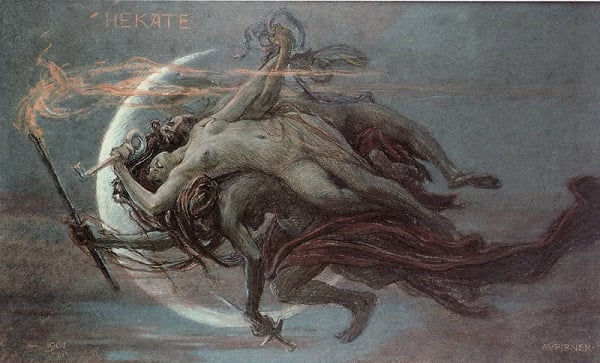
For many years I asked myself who the appropriate deities to follow were. Part of me felt a vast gulf between my teenage self and the ancient names I was reaching out to just because I felt an affinity for them. There was also a part of me that felt I we being disingenuous to myself and my practice, as well as my ancestry. Being of Germanic and English descent I felt at odds with the Greco-Roman deities that I called my patrons. Nonetheless I felt a lasting attraction to the goddess Hecate and her consort and fellow psychopomp Hermes. The symbols of their mythology aligned with my spiritual practice and their occult associations felt most appropriate. After all being devoted to deities of magic and witchcraft, including poisonous plants and the crossroads seemed to fit with the central elements of my practice. However, there were times when I felt that following these deities of magic was unoriginal and too predictable. I felt like perhaps I was deceiving myself. I questioned whether these patrons were right for me.
After further research and a few more years of work I began to notice a pattern. No matter which traditions I studied or the pantheon of spirits I worked with I found myself to the same currents. The psychopompic gods of the crossroads and dark subterranean witch-queens continued to draw me into their hidden world. My magical practices became less concerned with achieving mundane ends and more focused on spirit congress and occult knowledge.
I didn’t find any immediate connection with the gods of the Norse or Celtic pagans, feeling somehow too distant from these ancient Europeans. However, I recognized the similarities in their mythology and tribal gods and goddesses. Ancient polytheists were able to recognize their own deities’ attributes within another culture’s pantheon. I wonder if they realized that the gods of men were vessels for ancient nameless spirits wearing many different masks as many modern witches believe.
I grew up in a Protestant household, and a Christian worldview was present throughout my upbringing. In retrospect I think it has taken some time to undo my monotheistic way of thinking. In studying early Christian history and its relationship with European Paganism, which lasted until the modern neo-pagan revival. I have come to realize the important role that the Church has played in the history of witchcraft. Also, my studies revealed the important role that Jewish mysticism and Arabic astrology had in preserving ancient occult secrets influencing European esotericism. While the Church’s view of witchcraft was negative, to say the least, the literate clergy also preserved a large body of occult lore during the medieval period.
The worldview of Latin Christendom that continues to dominate the Western hemisphere has provided a catalyst for ushering the elder gods of magic and nature into the early modern period. The collective entity of Lucifer and the Christian Devil, for example, is a fitting vessel for the elder god we call the Witch Father. There are pre-Abrahamic deities of ancient Mesopotamia that also fit the role of this promethean archetype.
There have always been those who have walked the periphery of humanity reaching out to the spirit world; we have only recently been called Witches but like our gods we fill many forms and go by many names. Looking back on the many years that I honored Hecate Queen of Witches, I realized that through the trials of the dark goddess I was led to the illumination of the Horned God. Now under the auspices of the Witch Queen and Witch Father, my devotional offerings to the spirits of the land and ancestors are made in their nameless honour.

